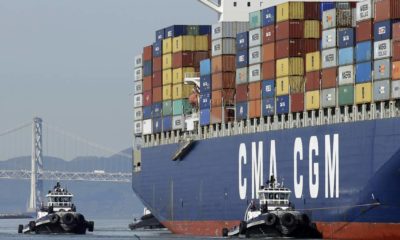- Nigeria Faults US Report on Rice Importation
The Kebbi State Governor, Alhaji Atiku Bagudu has faulted a report by the United States Department for Agriculture which suggests that the nation had imported rice to the tune of about three million tonnes, saying it was inconsistent with available facts.
Bagudu, whose state is one of the largest rice producers in Nigeria, told the National Food Security Council presided by President Muhammadu Buhari that he made contact with the US agency to establish the basis for the report, because it was worrisome.
He said, “The US authorities responded by saying that their assessment was based on satellite imaging of flooded areas and consideration that we are about to enter electioneering period and that demand for rice by politicians or for political purposes will increase. Thirdly, that most West African countries depend on Nigeria, and because of the flooding, they concluded on those assumptions that Nigeria will import more.
“Certainly, that is an erroneous report, even in spite of the fact that flooding of upland rice production has been quite much this year. Even though prices have increased in response to flooding, we still have adequate paddy rice in Nigeria.”
The Governor explained that, “The official importation in Nigeria is about 4,000 metric tonnes of rice. Secondly, the biggest exporter of rice, Thailand exported 1.1 million metric tonnes of rice to West Africa between January and October this year, and India exported 4.02 million metric tonnes of rice to West Africa from January to the end of July this year. That is a total of 1.5 million metric tonnes. Even if all of it was smuggled into Nigeria, that was the total amount of importation one could attribute to Nigeria.”
Bagudu has said repeatedly that his state was working towards achieving a price of N10,000 per bag of local rice.
Also addressing the Security Council, the Minister of Agriculture and Rural Development, Mr. Audu Ogbeh, harped on the need to place a ban on NPK 151515 fertiliser on the grounds that it was not useful to crop or soil in the country
He told journalists: “We called for the ban of fertiliser NPK 151515 which has been used in the country for many years but recent research revealed it was not useful for any crop or any soil; soils differ and so does crop.”
According to Ogbeh, “To believe there is one uniform fertiliser you can spread for every crop is a fallacy. And it is because we have done soil test and change the formulations of fertilisers. Some of the yields we are getting now are rising from two tonnes per hectares to five and six. So, the President is looking into that to see how we can deal with it.”
He also hinted that the Bureau for Public Enterprise (BPE) was about to restructure the Bank of Agriculture such that farmers would be able to buy shares in the bank, adding that “eventually it will become the farmers’ bank. And we hope in the process that it will bring down interest rates reasonably maybe to five per cent or a little higher, so that agriculture will become attractive and people can raise capital to invest.”
On herdsmen/farmers clashes, the minister said: “We are putting in place a programme now to see if we can aggregate all the wastes from harvest – from maize stock, rice stock, sorghum, Millets, beans, process them, add molasses and feed the cows instead of letting them roam around and getting to the point of conflict with the farmers.
“We also announced a decline in foreign exchange expenditure on food items in the last five years. The items are sugar, milk, Rick, tomato and wheat. In 2013 we spent $1,424,968.1 importing these five items, the figure dropped to $1.280 billion in 2014. These are figures from the CBN as at Monday this week. In 2015 the figure dropped further to $971 million and to $780.792 million and in 2017 the figure is now $628,643 million. The figure for the 2018 will be ready next year. You can see the decline in our importation of food.

 Naira4 weeks ago
Naira4 weeks ago
 News3 weeks ago
News3 weeks ago
 Education4 weeks ago
Education4 weeks ago
 Social Media4 weeks ago
Social Media4 weeks ago
 Economy4 weeks ago
Economy4 weeks ago
 Investment4 weeks ago
Investment4 weeks ago
 Dividends4 weeks ago
Dividends4 weeks ago
 Business3 weeks ago
Business3 weeks ago



























